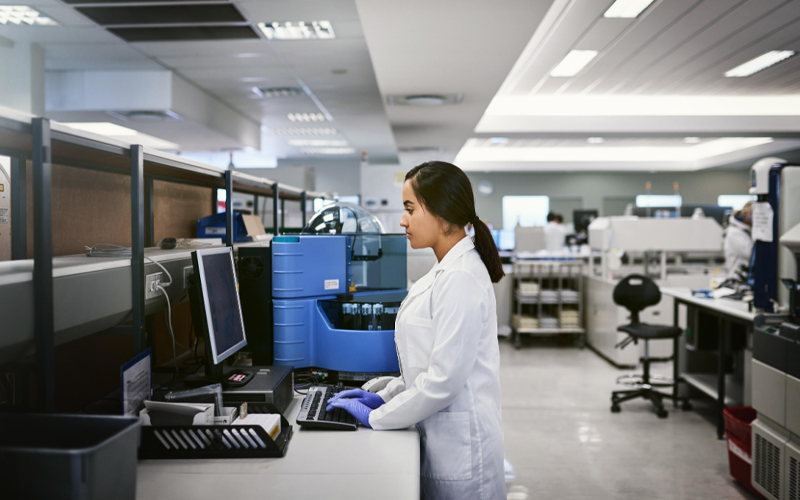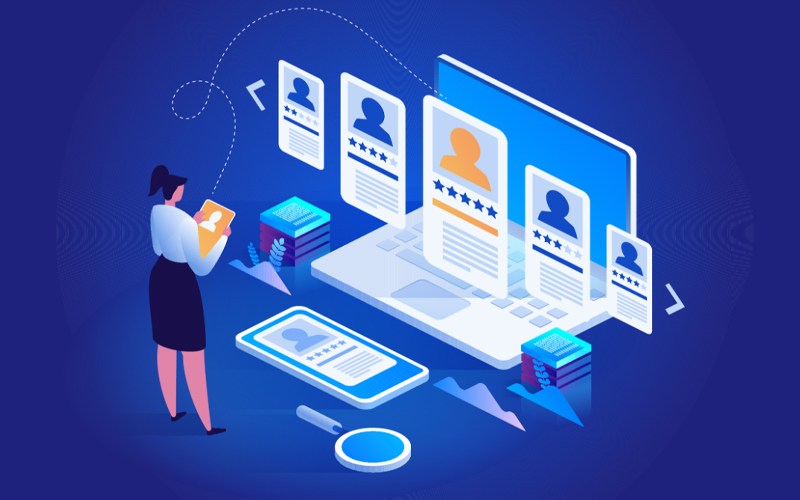When the world battled the pandemic it took an incredible toll on humans – both physical and mental – and the need for personalised healthcare was realised. Personalisation in healthcare can be achieved through custom-made diagnoses, and tailored treatment as per an individual’s need, lifestyle, medical situation, etc.
To achieve this level of personalisation, we need to closely monitor the health of an individual. This is where wearable devices come in, as they help track daily activity and vital health metrics, enabling the masses to make lifestyle changes accordingly. Though a plethora of personalised data can be tracked this way, the journey towards truly personalised healthcare is still encumbered with several obstacles.
Challenge #1 - Data complexity and integration:
One of the key blockers for personalised healthcare is the vast and complex variety of medical data – a patient’s medical history, reports (textual and imagery), activity data from various wearable devices, and the real-time monitoring and analysis of the same through the respective device software. It is practically impossible for a human to consolidate, analyse and make use of this data to provide a personalised experience to a patient.
How can AI help: AI is capable of integrating diverse data sources and can process enormous amounts of data, identify patterns, apply significant domain expertise, and generate meaningful results and suggestions from the data. For instance, machine learning algorithms can be put to use to draw relations between various tests, medical history, and allergen information of a patient and suggest a customised diagnosis.
Challenge #2 - Lack of interoperability:
The traditional healthcare industry is marked by many legacy systems, which are disparate and lack interoperability. Also, the data is mostly unstructured, which limits any standard automation solution from processing data with acceptable accuracy. This disconnect restricts the seamless exchange of patient data autonomously between various healthcare providers. This becomes a hurdle in better and personalised healthcare due to the unavailability of relevant medical data.
How can AI help: AI technologies like Natural Language Processing (NLP) can help with reading unstructured medical data and converting it into a structured format acceptable by multiple systems. Also, custom AI solutions can be built to extract and process data from multiple legacy systems, analyse the data, generate meaningful insights, and make it available on a common central platform, accessible to healthcare providers across the country, thus eliminating the interoperability challenges.
Challenge #3 - Continuous learning to make clinical decisions:
Healthcare requires clinicians to make clinical decisions regularly based on medical knowledge, experience, the patient’s medical history, and diagnosis outcomes. However, it is practically impossible for a clinician to keep up with the continuous advancements in the medical field. Personalised healthcare is even more challenging considering the unique needs of the patient and the humongous quantity of data available for the same.
How can AI help: AI models can be built and trained on various medical literature available across the globe and can be further programmed to learn and process any patients’ medical data and treatment outcomes. AI algorithms can assist clinicians in making the right decisions about treatments based on a patient’s medical data and can also alert clinicians in case of a misdiagnosis.
Challenge #4 - Patient-doctor connectivity:
A significant aspect of personalised healthcare is the connection between the patient and the doctor, primarily to address patient queries about medication, development in health conditions due to medication, diet, etc. However, despite a growing demand for personalised healthcare, sometimes it is impossible to get a one-to-one appointment with doctors, which is a loss for critical patients whose time may be cut down due to longer wait times wasted in routine check-ups.
How can AI help: AI-based tools and systems can be built to keep patients notified about their upcoming scheduled visits and tests and can alert them in case of any significant change in health condition by continuously monitoring key parameters like heart rate, blood pressure, etc. Also, AI-enabled chatbots and virtual agents can become the frontend applications to answer patient questions, which can also schedule doctor visits in case of critical situations, thus eliminating the need for one-to-one connections with the doctor for almost every query.
Some popular applications of AI-based tools in healthcare:
- Diagnosis: With the help of AI-based diagnosis tools and microscopes, doctors and pathologists can more accurately diagnose fatal diseases like cancer and the presence of life-threatening substances in blood samples. An example can be PathAI Diagnostics, formerly Poplar Healthcare, a US-based leading laboratory services company, that has multiple AI tools for cancer detection.
- Intelligent drug discovery: BPGbio, a clinical-stage biopharma, is leveraging AI to reimage and redefine how patient biology can be modelled to accelerate and de-risk the process of drug discovery for humanity. The company focuses on 3 core areas for intelligent drug discovery – oncology, neurology, and rare diseases.
- Robotic surgery: Robot-assisted surgery has gained immense popularity in recent times with various hospitals implementing robotics during critical surgeries. Primarily, the procedures that require precision, control, and flexibility are preferred for robotic surgery. It is used in tasks, including open-heart surgery, exceeding human capabilities.
Implementing AI-based solutions is a journey and has its fair share of challenges. However, by selecting the right AI technology and its respective area of implementation, these challenges can be eliminated. AI can play a pivotal role in making progress on the road towards personalised healthcare by integrating complex patient data, reading, and analysing unstructured data, connecting legacy systems, providing decision-making support, and enhancing patient engagement.
With the help of AI, healthcare companies will be able to accelerate and refine the drug discovery process, researchers will be able to access and process vast amounts of patient data collected through various devices and systems, and healthcare facilities can be made available easily to even the most remote areas by eliminating the need of giant machines for diagnosis. By implementing such AI tools in the right direction, we as industry leaders, can bring in revolutionary changes in the healthcare industry, thus giving back to society.
This article was first published on The Evolving Enterprises







